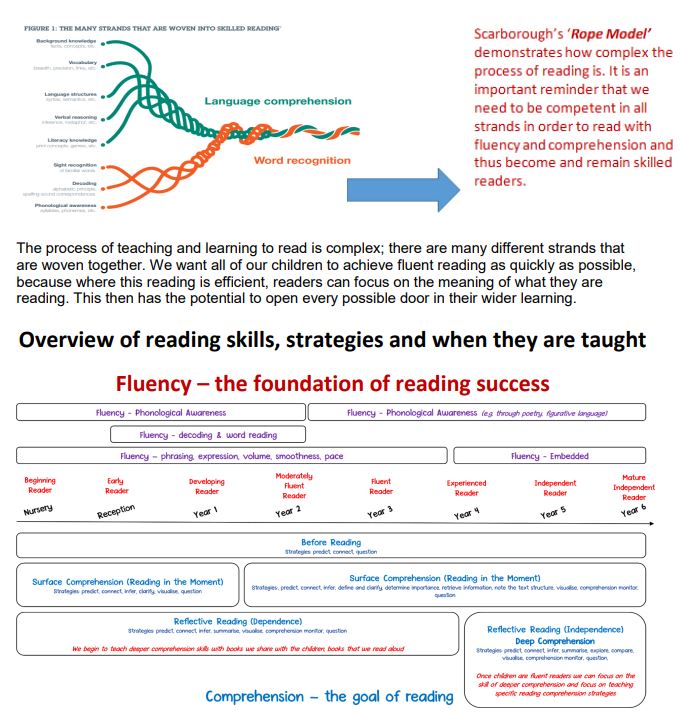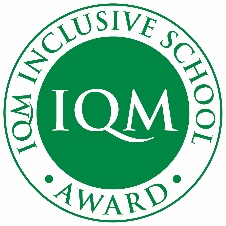Our Approach to Teaching Reading
Intent: What we want our pupils to learn?
At Barham, we strongly believe that developing children’s reading skills is fundamental to education and that it enables children to gain access to and thrive in all areas of the curriculum.
We have an English curriculum that is coherently and logically sequenced which is designed to empower and challenge all of our pupils, coming from various parts of the world, so that they become Global citizens of the 21st century. Our English curriculum helps our children develop their linguistic skills, but also acquire the cultural capital they need to thrive in Britain and the World. Our school uses the United Nations Sustainable Development Goals (SDGs) as curriculum drivers.
Embedding excellence at Barham ensures that reading and the explicit teaching of reading is at the heart of and drives our whole curriculum. Barham’s Reading curriculum intends to inspire our children's imagination and love of books, creating the readers, actors, poets and, of course, authors of the future!
Our intent at Barham is to enable all children to be fluent readers who can talk eloquently about a wide range of texts and genres. We support children in developing their reading by exposing them to as many different reading genres as possible, while fostering excitement and love for reading from nursery which is continued right up until they leave us in year 6 and beyond through engagement in texts which reflect our global goals and underpin our curriculum.
Being a fluent reader with a love of books opens up many opportunities to the wider world, as well as enabling the children to access other areas of the curriculum more easily. Because of this, we ensure that reading is part of all areas of the curriculum so that it is seen as a life skill, which opens up the door to richer learning experiences and not just a discrete subject.
We see it as our job to not just prepare children to be “secondary ready” but to be “life ready” as the reading skills which we teach them, they will use for the rest of their lives. It is therefore imperative that school and families work together to ensure our children receive the best opportunities possible.
We want our children to:
- See themselves as a reader and celebrate their success
- Read for pleasure, becoming enthusiastic and reflective readers
- be introduced to language-rich texts, which link to the wider curriculum and respond to children’s interests
- Understand the relevance of reading to themselves and their lives
- Develop resilience as independent readers
- Ensure our children have sound phonic awareness and use a phonics first approach to reading
The most important thing that children will do at school is learn to read.
Implementation: How we plan and teach reading?
Effective teaching ensures that pupils retain knowledge they have learned in the long term. This is supported by opportunities to revisit and practise with prior knowledge. Pupils are more likely to retain knowledge when they have engaged analytically with the content they study. Teachers can support learning through clear exposition, which takes into account what pupils already know and understand.
Using the EEF’s guidance reports on improving literacy in KS1 and KS2, we ensure our lessons: -
- Develop pupils’ language capability to support their reading – purposeful speaking and listening activities support the development of pupils’ language capability and provides a foundation for thinking and communication. This could include: reading books aloud and discussing them; activities that extend pupils’ expressive and receptive vocabulary; collaborative learning activities where pupils can share their thoughts processes; structured questioning to develop reading comprehension; and teachers modelling inference-making by thinking aloud.
- Using a balanced, engaging approach to develop reading, which integrates both decoding and comprehension skills – both decoding (the ability to translate written words into the sounds of spoken language) and comprehension (the ability to understand the meaning of the language being read) skills are necessary for confident and competent reading, but neither is sufficient on its own.
- Use of a systematic, synthetic phonics programme - Systematic phonics approaches explicitly teach pupils a comprehensive set of letter-sound relationships for reading and sound-letter relationships for spelling.
- Support pupils to develop fluent reading capabilities – Fluent readers can read quickly, accurately, and with appropriate stress and intonation. Fluent reading supports comprehension because pupils’ cognitive resources are freed from focusing on word recognition and can be redirected towards comprehending the text. This can be developed through: guided oral reading instruction, repeated reading and ensuring that current capabilities are considered and addressed accordingly.
- Teach reading comprehension strategies through modelling and supported practice – reading comprehension can be improved by teaching specific strategies that pupils can apply both to monitor and overcome barriers to comprehension. These include: prediction; questioning; clarifying; summarising; inference; and activating prior knowledge. The potential impact of these strategies is very high, but pupils are required to take greater responsibility for their own learning.
Staff are encouraged to develop cross-curricular links with reading and other subjects to provide a relevant and meaningful curriculum for pupils. Reading contributes significantly to our teaching across the curriculum. Children are exposed to a range of texts linking to other areas of our curriculum, including history and geography. Children are exposed to new vocabulary in all other subjects, including technical language.
Spiritual, moral, social and cultural development (SMSC) In our teaching of reading, we also contribute to the development of the children’s spiritual, moral, social and cultural understanding by looking at the establishment of multicultural Britain and the moral implications of the actions of historical figures. Children are therefore provided with many opportunities to discuss moral questions.
Impact: What we achieve by delivering reading in this way and how we know?
Assessment is used to monitor progress and to identify any child needing additional support as soon as they need it.
Assessment for learning is used:
- daily within class to identify children needing Keep-Up support
- weekly in the Review lesson to assess gaps, address these immediately and secure fluency of GPCs, words and spellings.
Summative assessment is used:
- every six weeks to assess progress, to identify gaps in learning that need to be addressed, to identify any children needing additional support and to plan the Keep-Up support that they need.
- To assess whether a child would need to be placed onto Rapid Keep Up or SEND programme in the instance where less than expected progress has been made by SLT and scrutinised through the Lesley Clarke’s Letters and Sounds assessment trackers, to narrow attainment gaps between different groups of children and so that any additional support for teachers can be put into place.
STATUTORY ASSESSMENT:
Children in Year 1 sit the Phonics Screening Check. Any child not passing the check re-sits it in Year 2.
ONGOING ASSESSMENT FOR KEEP-UP:
Children in Year 2 to 6 are assessed through their teacher’s ongoing formative assessment as well as through the half-termly Lesley Clarkes Letters and Sounds formative and summative assessments.
Pupils attainment and progress in reading is recorded by teachers using Target Tracker to inform parents and future teaching and learning activities.














